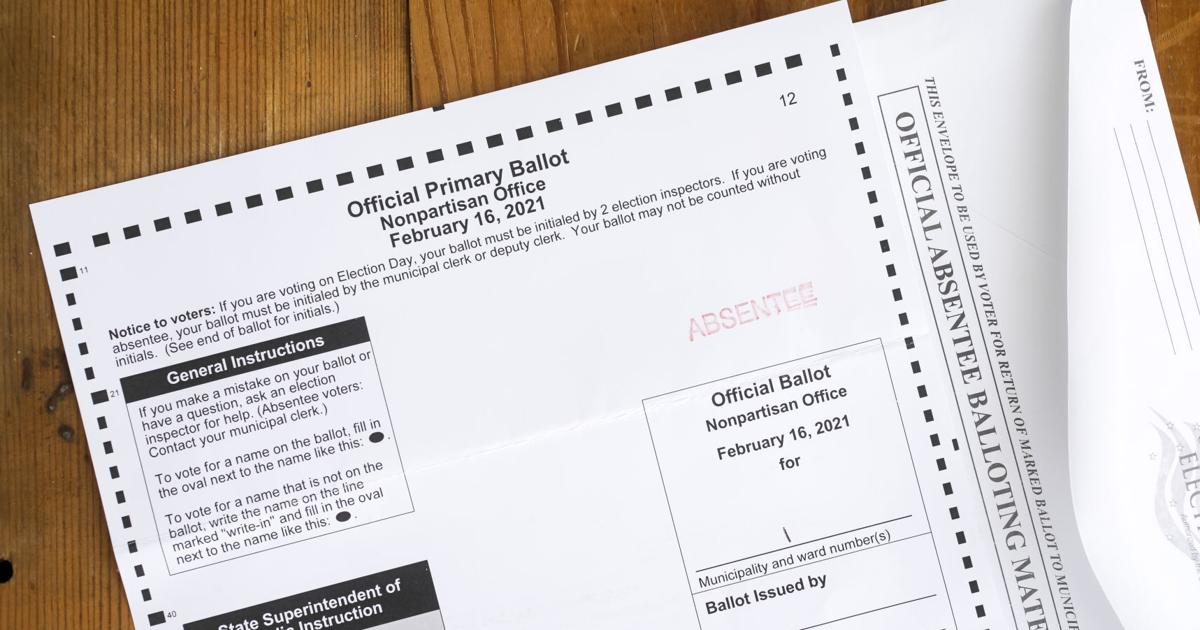A Dane County judge ordered Tuesday that voters with disabilities should be able to receive absentee ballots by email, but state officials said setting up the service before the November election would be logistically difficult.
In April, a group of voters with disabilities sued the state, alleging that the absentee voting system effectively disenfranchises them and violates their right to a secret ballot.
As a solution, lawyers representing voters have asked Dane County Circuit Judge Everett Mitchell to issue an emergency order allowing city clerks to email blank ballots to voters in the November election that they can fill out electronically and return to election officials.
Initially, voters also wanted to complete and return their ballots electronically — a practice not available in Wisconsin but available in 13 other states — but voters ultimately dropped that request. The issue of returning ballots may be subject to further developments as part of a broader lawsuit.
Currently, electronic absentee voting is available only to Wisconsin residents who are in the military or overseas. A 2011 law prohibits “elections officials from emailing absentee ballots to all but a select few voters.”
Erin Deely, an attorney representing the Wisconsin Disability Rights Coalition, argued that the current system places an undue burden on voters with disabilities and violates state and federal equal access laws.
Currently, voters must rely on their caregivers to fill out their ballots, a process that violates the right to a secret ballot, Deeley said. One voter said she fears alienating her caregiver over political differences, at a time when it’s difficult to get their help.
Deeley said arguments by the Wisconsin Elections Commission and state legislature in favor of maintaining the status quo “disregard the fundamental right to a secret ballot.”
“Neither (WEC) nor the state legislature has explained why delivering a blank ballot to a voter with a disability is more difficult than emailing the same ballot to a military or overseas voter,” Deeley said.
Assistant Attorney General Carla Keckhaver said the right to a secret ballot does not guarantee a system where no one can know how someone voted.
She also said the request from voters is logistically challenging because they are trying to conduct the Aug. 13 primary while also needing to train 1,800 local clerks on the new system.
Many clerks don’t have the software to send out electronic ballots, and some don’t even have government-issued email addresses, raising security concerns for both voters and election officials, she said.
“Rushing to roll out a new electronic voting system would greatly increase the potential for confusion among clerks and voters, causing irreparable harm and voter disenfranchisement,” Keckhaver said.
It’s unclear whether the state will appeal Judge Mitchell’s ruling. As it stands, the Board of Elections will likely have to issue guidance to clerks on how to logistically implement the email option.
In his ruling, Judge Mitchell said voting by email would only be available to voters who self-certify that they have a “disability that prevents the person certifying their absentee ballot from reading or completing a paper absentee ballot for themselves.”
This includes voters who are blind or have a “physical disability that impairs manual dexterity.”
“To be accessible, an electronically delivered accessible absentee ballot must be able to be read, marked, and otherwise navigated by a voter with a print disability using digital assistive technology, such as a screen reader,” Mitchell wrote.
The lawsuit is one of many election-related cases currently before the court ahead of the November election.
The Wisconsin Supreme Court is expected to rule soon on whether ballot drop boxes can be allowed again in Wisconsin after being banned in a 2022 ruling that has also been criticized by disability rights groups and others for creating a barrier to voting.
Andrew Baer will join Cap Times in September 2023 to cover Wisconsin politics and government. He is a graduate of the University of Wisconsin-Madison and has covered state governments in Pennsylvania and Kansas.
You can follow Andrew at X @AndrewBahl or support Andrew’s work by becoming a Cap Times member.

